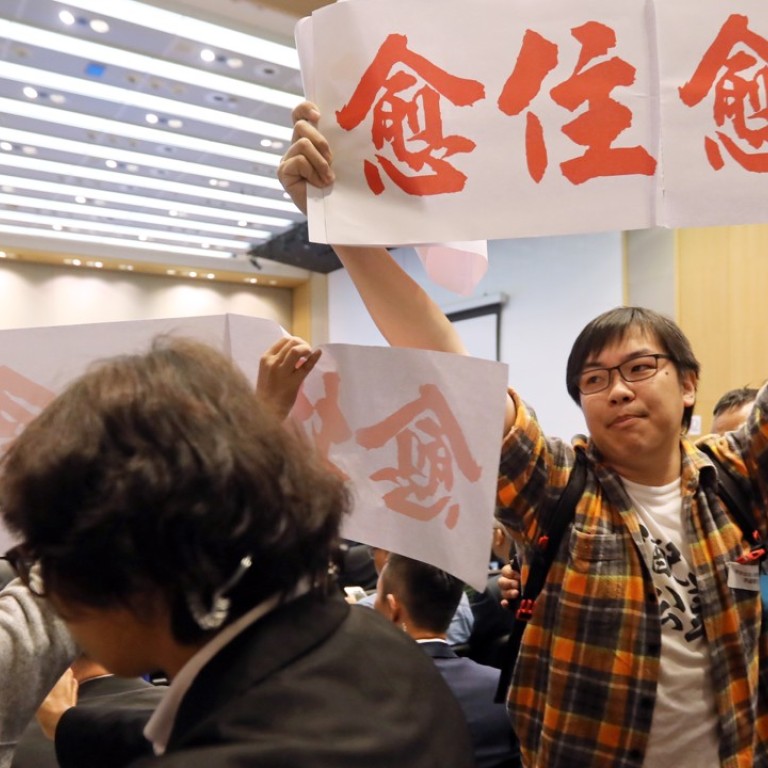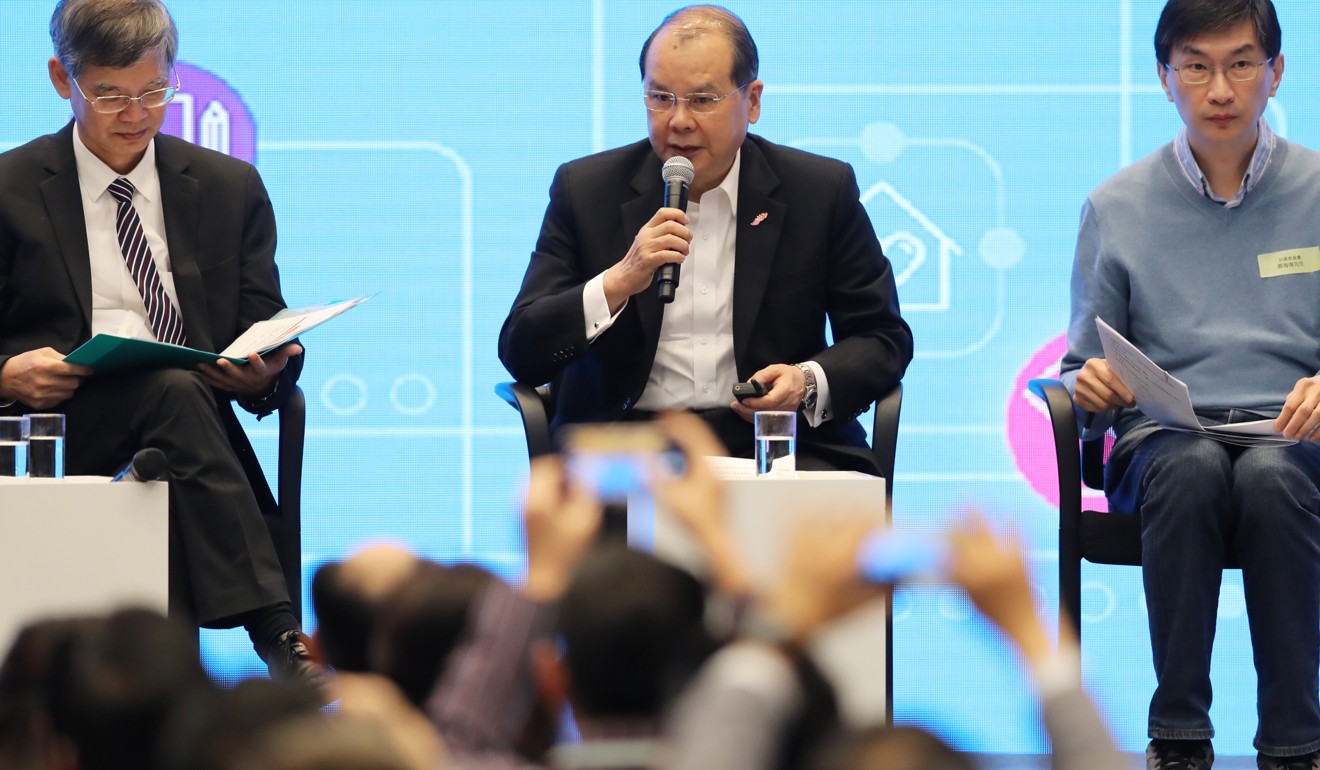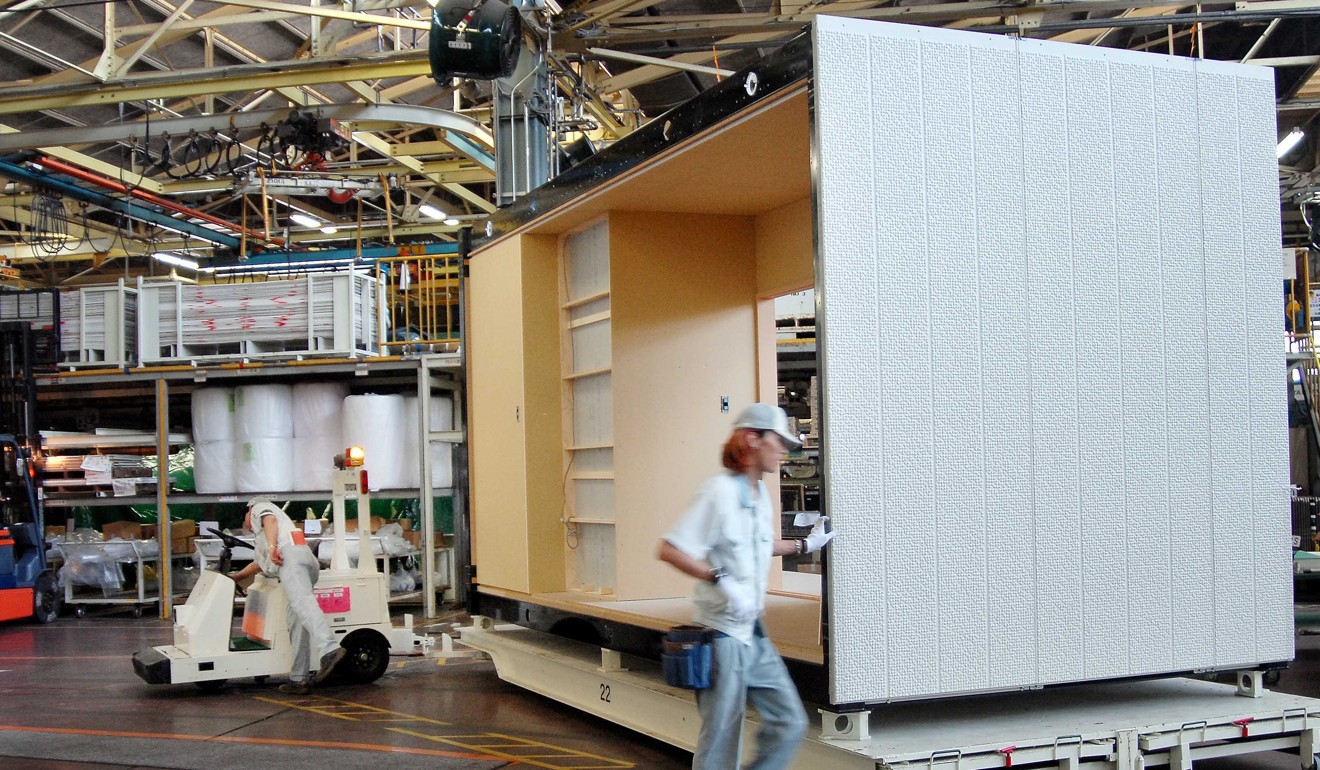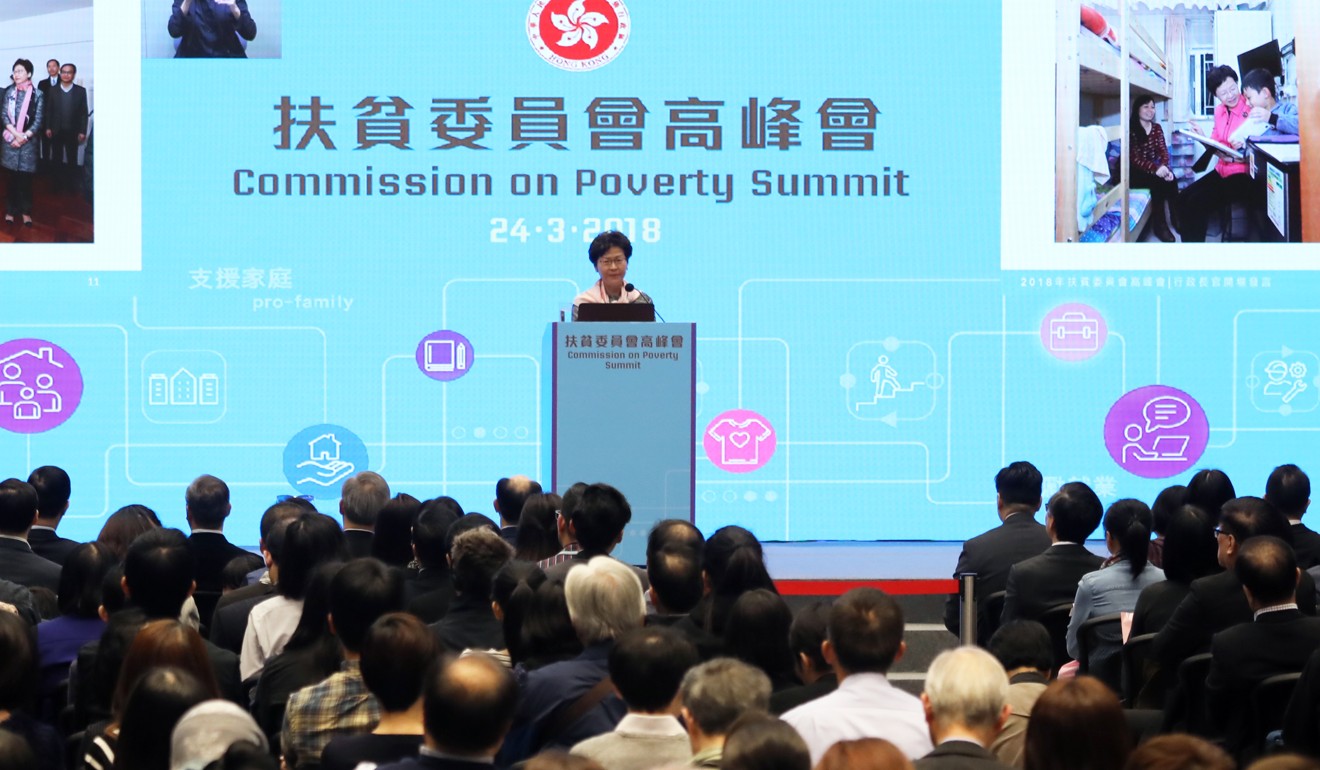
‘Prefabricated social housing for Hong Kong’s needy may be completed by next September’
Social service group sets sights on modular housing aimed at alleviating plight of the poor, as city’s leaders discuss issues at poverty summit
Construction of Hong Kong’s first social housing development made from prefabricated units could be completed as early as September next year under a government-backed pilot project for the needy.
Property giant Henderson Land Development agreed to lease out a residential site, likely to be in the New Territories, to the Hong Kong Council of Social Service (HKCSS), an NGO, for a token fee of HK$1 for the group’s new transitional social housing project, sources said.

“We hope that we can use some unutilised land or sites for a certain period of time and then after returning the land to the developer or the government, move these modular units to another site so that we can recycle the units,” Chua explained. “We can save money and be more environmentally friendly.”
Hong Kong prefabricated home trials to be launched at HKU and Science and Technology Park
At the same conference, Secretary for Transport and Housing Frank Chan Fan revealed that the government, acting as a facilitator, had been helping with a modular construction project aimed at providing transitional housing for the underprivileged.
“We have the land, the design, the professional support and overall approved procedures. I can say that we have everything, but money,” Chan said, adding that with funding, construction could begin as early as September.
I can say that we have everything, but money
While Chua and the Transport and Housing Bureau would not confirm whether the cited projects were the same, two sources familiar with the matter told the Post this was so.
A spokeswoman from Henderson Land confirmed to the Post that it had offered land to the government for the purpose of a modular housing project. But she said it was not known whether its site had been chosen for the project Chan mentioned.
The homes would take one year to build and the HKCSS was seeking funding to back the project, Chua said. If completed, the development would be the first such social housing consisting of prefabricated modular units.
Last year, the government said there were two trial sites planned for prefabricated dormitories for Science Park staff and University of Hong Kong students.
Plans for container homes in Hong Kong get mixed reaction from experts
Unlike traditional methods of construction, prefabricated modular housing is built and completed off site, then delivered to the location to be assembled and stacked. Such structures could be limited to three storeys to avoid complicated and stringent design requirements, a source said.
Chua said building container homes had earlier been proposed, but transforming container units for residential use did not comply with the city’s fire and building code, so that plan did not proceed.

Instead, the pilot project would use modular housing units and was expected to cost at least tens of millions of Hong Kong dollars, to provide temporary homes for the needy.
Chua said it had yet to be determined whether families, young people or those on the waiting list for public housing would benefit.
The NGO chief added that the site already had some basic infrastructure, but there were still a number of approvals to obtain and other issues to sort out before obtaining a better estimation of the actual completion date.
The government has pledged to “think out of the box” and support community initiatives to increase the supply of transitional housing. The hope is to alleviate the hardship of hundreds of thousands of people in the city who are inadequately housed.

Last year, HKCSS announced another government-backed plan to provide 500 temporary flats for 1,000 low-income households over a three-year period. Under the scheme, needy families waiting for public housing would share renovated flats offered by developers or landlords.
Low-income households must wait an average of five years before they are allocated a public housing flat in Hong Kong, a city notorious for having the highest property prices in the world.
If the housing problem is resolved, other problems can be easily resolved too
“If the housing problem is resolved, other problems can be easily resolved too,” Lam said.
“In fact, intervention through housing is much more effective and important than other cash-based assistance.”
However, Lam’s remarks failed to appease concern groups, as a handful of people shouted slogans and raised banners inside the conference hall at Tamar before they were escorted out by security.
Earlier in the day, protesters outside the government headquarters criticised authorities for failing to curb skyrocketing property prices and neglecting the poor who had fallen through the cracks.
Lam urged the public to participate in an upcoming five-month consultation, set to begin in the middle of next month and spearheaded by the government-appointed Task Force on Land Supply.
On conflicting land usage issues in the city, she said: “Some environmental groups say to me that they are against reclamation and they want to speak up for the harbour since it does not have a voice. I said: there are many children who are living in extremely poor living conditions, they may not know how to voice it out. We should be the voices for those children.”
Thinking inside the box: Hong Kong container homes could be on the way
In response to Lam’s comments, conservation group Greenpeace fired back in a statement, saying the chief executive had “made environmental groups scapegoats”.
“Such comments only serve to drive a rift, pitting environmental groups against the grass-roots community, and trying to divert attention away from the government’s incompetence and inaction on housing problems,” it read.
Greenpeace said Hong Kong’s leader had the responsibility to come clean on why 723 hectares of brownfield sites went untouched and address the issue of private recreational clubs taking up government land.

